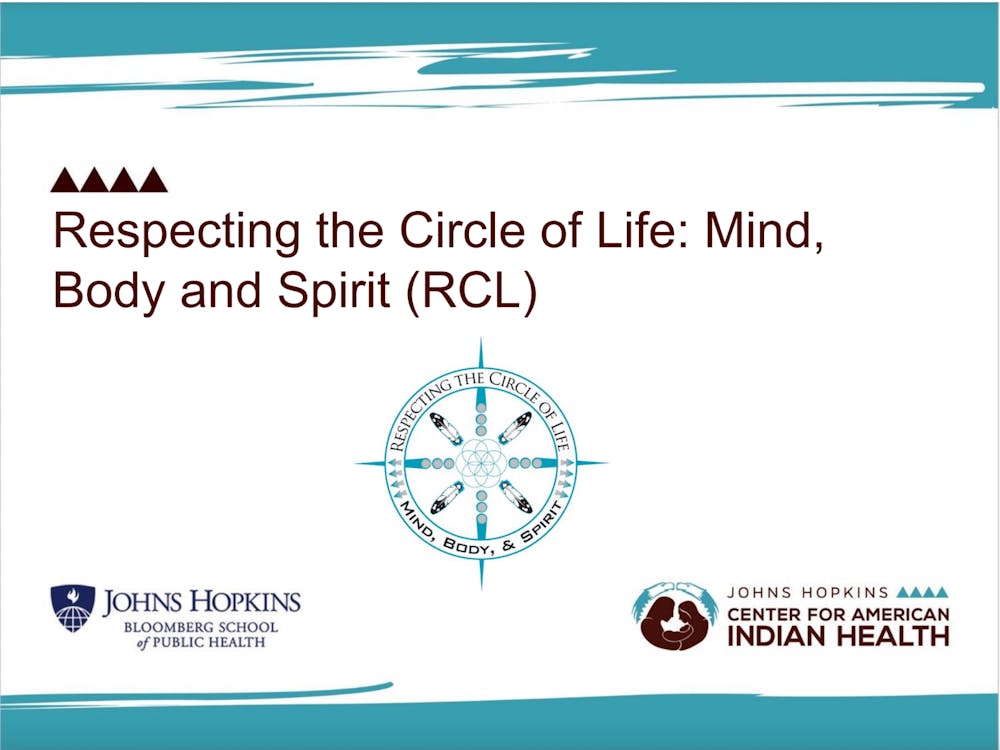Native American teens have the highest birth rate across all races and ethnicities in the U.S. at 29.2 teen births per 1,000 girls. After a Native American tribe in Arizona approached the Hopkins Center for American Indian Health (CAIH) seeking an intervention program for Native youth, researchers developed a comprehensive sex education program tailored to Native communities.
Most teens in this country learn about teen pregnancy prevention and sexually transmitted infections (STIs) through sexual health education programs at school. In Arizona, however, these programs are not required, with only 14.5% of high schools and 5.1% of secondary schools teaching all critical sexual education topics.
Lauren Tingey, associate director of CAIH and associate scientist of International Health at the School of Public Health, described the significance of the new curriculum in an interview with The News-Letter.
“Native teens need programs that are specifically designed for them and proven to work, which is what makes the results from this study so exciting,” she said.
During a free two-week summer basketball camp, the program provided eight different lessons covering sexual health knowledge, self-efficacy, intention and communication. The camp is followed by a lesson delivered at home to the youth, plus their parent or another trusted adult. The program can be taught in-person by trained facilitators, or completed virtually.
This curriculum, called Respecting the Circle of Life, was designed to attend to particular aspects of Native communities’ culture. After completing the program, Native youths reported having more conversations about sexual and reproductive health, higher contraceptive use self-efficacy and greater intention & negotiation skills. The positive results of this study demonstrate the encouraging potential of future programs similar to Respecting the Circle of Life.
Tingey noted that it is not yet certain whether this program will affect teen pregnancy or STI rates in the coming years; however, she hopes it will spread awareness to other tribal communities who might have an interest in this education.
Tingey detailed how her background led to her current field of study. After college, Tingey travelled throughout Sub-Saharan Africa and met researchers from Hopkins who further developed her interest in HIV and STI prevention. Her social work led her to Southern India, where she worked with different agencies providing housing to individuals with HIV.
“Women whose husbands brought home HIV, but [it was] the women [who] were kicked out of the home,” she said.
There is still significant stigma associated with HIV and STIs across many cultures, which makes it more difficult to promote resources and launch prevention programs.
Tingey pursued her graduate education in social work with a clinical focus, and in public health regarding social and behavioral sciences. She came to Baltimore City to work with people living with HIV and to research HIV prevention in international populations.
Since 2008, Tingey has worked with CAIH to develop programs regarding substance abuse, suicide prevention and primarily sexual and reproductive health, especially among youth populations.
“The field is moving towards having interventions that are more holistic in scope, recognizing that substance use doesn’t happen in a silo, and teen pregnancy doesn’t happen in a silo; often these issues are co-occurring,” she said.
Researchers work through this complex intersection by teaching application methods such as problem-solving, communication skills and goal setting to promote healthy decision-making.
“Part of our center’s approach and philosophy to behavioral health intervention is [that] if you work upstream, and [if] you work in advance of sexual risk behaviors occurring, hopefully you can delay them occurring while also giving youths the tools to engage in safe sex practices,” Tingey said.
The successful delivery of material rests on whether the program’s content is situated within the context of the culture in which it is being delivered. CAIH is careful in conducting formative research for the development of each inimitable program. This process entails close communication between the researchers and community advisory boards, as well as interviews and focus groups, to maximize efficacy of the developed programs.
Tingey also provided insight into future areas of interest. Though these initiatives are still in the preliminary stages, researchers are interested in increasing access to alternative STI and HIV screening methods. There are 12 Indian Health Service areas around the country, though the challenges of stigma, location and confidentiality concerns impede accessibility.
The new programs would provide self-screening kits to use privately, then facilitate the transportation of kits to a lab and help patients connect to treatment, if needed.
CAIH welcomes students to engage with them through volunteer opportunities, internships, capstones and courses, and Tingey encourages undergraduates to get involved in the various programs the CAIH offers in public health.





